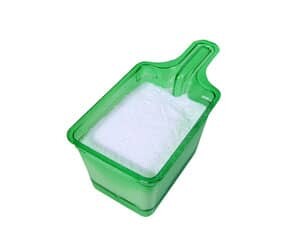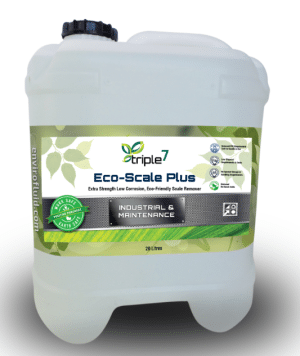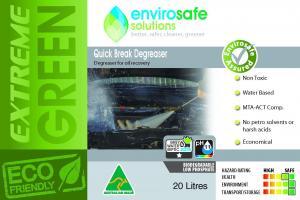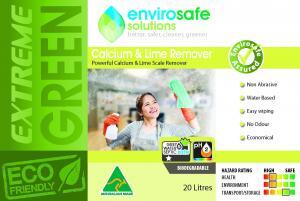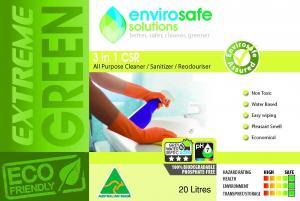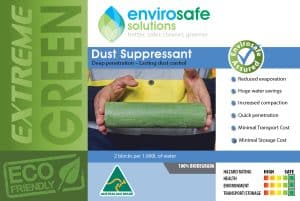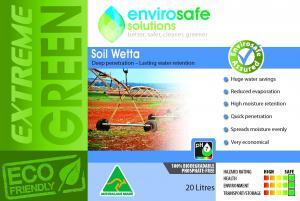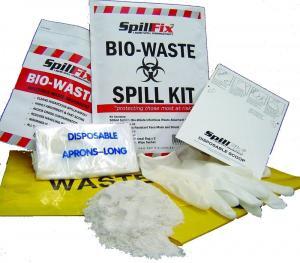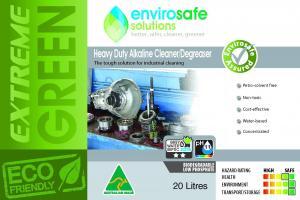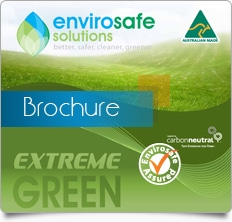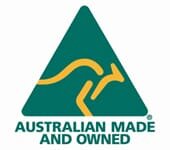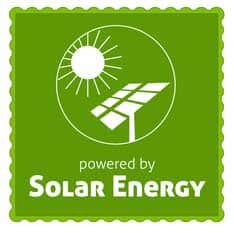A successful campaign against phosphate-based laundry detergents has highlighted the benefits of using environmental cleaning products. Australia has been lagging behind countries such as the United States, which banned phosphates in household laundry cleaners in 1993 amid concerns over impacts on waterways and wildlife. Australian supermarkets followed suit in April, 2011.
Domestic laundry products containing phosphates will be phased out in Australia following a campaign highlighting its environmental impact on waterways.
Phosphates are widely used in laundry products as a water softener and to remove dirt but have been identified as a cause of blue-green algae in rivers. Algal blooms strip oxygen from waterways, killing fish and plant life.
One of the worst cases of algal bloom was along a 1000km stretch of the Barwon-Darling River in NSW in 1991. The ‘pea soup’ bloom killed fish, sheep and cattle and, according to the CSIRO, was caused by low river-flow and resulting high concentrations of nutrients, including phosphorous. Cleaning products and fertilisers contribute to phosphate levels.
Phosphates have been banned in household laundry products in the US since the 1990s as part of a consumer-led push for environmental cleaning products. The European Union introduced regulations in 2004 with the aim of phasing-out phosphate-based products.
Supermarket chain Aldi was the first to answer the Australian phosphate-free charge, announcing in April that by 2013 its shelves would only stock phosphate-free laundry products. Coles and Woolworths have followed suit, promising to remove phosphates from its own home brand laundry products.
The moves have been welcomed by environmental advocacy group Do Something, which launched the national ban-phosphate campaign in October 2010, endorsing instead the use of environmental cleaning products.
Founder and 2010 Australian of the Year John Dee welcomed the action by the supermarkets and applauded the announcement by Unilever – the makers of major supermarket laundry brands – that its products would no longer contain phosphates.
The influential environmental campaigner said that Australians did 1.9 billion laundry washes a year and that switching to phosphate-free environmental cleaning products would make a big difference.
“If everyone was to use the no-phosphate alternatives it would reduce greenhouse emissions by about 85,000 tonnes, which is the equivalent of taking 33,000 cars off the road.”
Mr Dee said that 308 million Americans had been washing clothes with phosphate-free laundry powders. “If it works over there, there is absolutely no reason why it won’t here.”
Eco-friendly liquid products offer a sustainable substitute to traditional cleaners, which often contain harsh solvents. Examples of toxic solvents include N-Methyl Pyrrolidone (NMP), Tolene and Trichloroethylene (TCE), which have been linked to health problems including skin conditions, asthma, organ failure and foetal defects. Many traditional cleaning products are also high in phosphates and acids.
Envirosafe Solutions is a leading Australian environmental cleaning products company. It supplies industry, government and corporate sectors with eco-friendly cleaning alternatives. Its industrial-strength laundry formulas – Extreme Green Hard Water Laundry Liquid or Powder – are low in phosphates and fully biodegradable. Its fabric conditioner does not contain phosphate.
The move by major Australian supermarkets to remove phosphate-based laundry products from their shelves proves what Envirosafe Solutions and its customers have known for decades – environmental cleaning products can effectively replace toxic cleaners. For more information on laundry products or other sustainable cleaning alternatives, contact Envirosafe Solutions on 1300 88 90 70 or email info@evss.com.au.
Sources:
http://dosomething.net.au/issues.aspx
http://www.triplepundit.com/2010/03/toxies-awards-chemicals/








